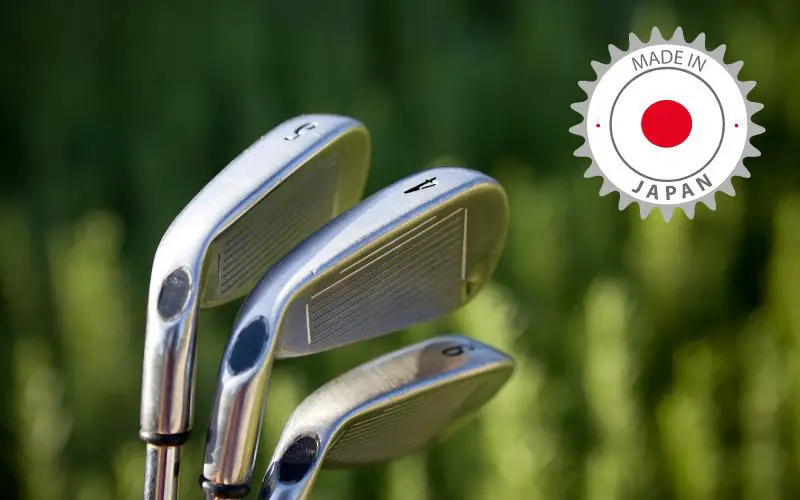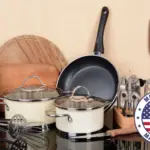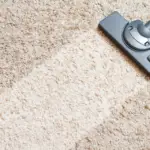For those of you who play golf, a good set of golf clubs is absolutely indispensable. It probably wouldn’t be much of a stretch to say that a good set of golf clubs can be the difference between victory and defeat. But where are you going to get the golf clubs that you need?
If you live in Japan, you might want to purchase your clubs from a Japanese company. Shipping will be much cheaper that way! Or maybe you want to support the local economy. Maybe you live abroad, but you are a fan of Japanese craftsmanship. No matter what your reason, this article has you covered.

Which Companies Sell Golf Balls Made in Japan? (The Short Answer)
I’ve done some pretty intensive digging around, and I’ve managed to find a number of companies that manufacture their golf clubs in Japan. You certainly won’t have any trouble filling your golf needs! The companies I found that manufacture locally are Honma, Miura, Mizuno, and Fujimoto.
Japanese-Made Golf Balls (4 Brands to Choose From)
In this article I’m going to be laying out a lot of the information I found about these companies. For some of them, I was able to find a lot of information. Others, not so much. Sometimes, information can be scarce and difficult to find. But some of the companies that I researched were pretty interesting! I think you’ll enjoy reading about them.
Read on to learn more about companies that manufacture golf clubs in Japan.
Honma
The first company on my list, Honma, is by a decent margin the largest and most well-known golf club manufacturer in Japan. The company was founded on February 18, 1959, by a team of two brothers. Honma’s original name was Tsurumi Golf Center Company.
Its first home was a small workshop in Yokohama. It wasn’t until several decades later, in 1981, that Honma moved production to Sakata city in Yamagata prefecture—this continues to be the seat of Honma’s golf club production to this day.
Honma’s most well known line of golf clubs is the Beres series. Don’t expect low prices! The cheapest set of Beres irons will set you back at least €3,000. On the other hand, the most expensive set will cost you nearly €50,000. These high-end clubs are made by hand and decorated with gold. Honma is also known for its Tour World series.
Honma hosts all of its production in a 180,000-square-foot factory in Sakata, Yamagata prefecture. It employs 360 craftsmen to design and produce its golf clubs. From start to finish, each of their golf clubs takes six months to manufacture, and 100 workers are involved in the process.
Miura
Miura was founded in 1957 in Himeji city, Hyōgo prefecture, Japan by a man named Katsuhiro Miura. Katsuhiro Miura entered the golf club manufacturing industry at 16 years of age, and decided to establish his own company after identifying what he believed were flaws in the manufacturing process of his employer. Miura is notable in that it only produces irons and putters—the company does not produce any woods or drivers.
Much like at Honma, all of Miura’s golf clubs are crafted by hand. The company moved production to a new facility relatively recently in May 1997, but I haven’t been able to find any information on its new factory other than that it is located in Japan.
Mizuno
Mizuno was established by a kimono shop worker from Ōsaka prefecture, Japan, named Rihachi Mizuno, and his brother. The company was founded in 1906. Unlike Honma and Miura, which had their feet planted squarely in the golf industry from day one, Mizuno was originally established as a baseball equipment outlet.
The company did not begin manufacturing its own products until 1913, and it was only in 1933 that it finally began manufacturing golf equipment. Mizuno opened a manufacturing facility in 1934 for the production of golf clubs—though the facility was also responsible for manufacturing baseball bats, balls, and uniforms, as well as skis.
Mizuno is notable for producing the greatest number of Japanese golf clubs by volume, and among Japanese irons, theirs are the ones that are most frequently played on the tour. The company’s success on the international stage has gradually increased in the many decades since its founding. In the 1970s, Mizuno began exporting golf clubs to Europe.
Unlike most other companies, which use CAD in conjunction with a casting process to produce their irons, Mizuno continues to use its own “grain flow forging” process—a process that it has patented, and believes ultimately delivers a higher quality product. The company is currently run by Akito Mizuno, who is the founder’s grandson.
Fujimoto
This is the last company on my list! It is also the least well-known. Fujimoto’s founder, Minobu Fujimoto, entered the golf business in 1960 when he used a small workshop by his house to repair and reproduce irons made by Western companies. No fancy technology here!
Fujimoto began by hammering and grinding all of his irons until they were just right—a technique that the company refined and has continued to use to this day. They call it “Hizukuri,” and the technique is used for the production of the company’s putters.
The company, Fujimoto Golf Equipment Manufacturer, was properly established in 1968. The company remains a family business to this day. Minobu’s three sons—Katsuya, Yoshito, and Takeki—joined the company in 1988. Each of them continues to play an important role.
Katsuya is the company’s current President. Yoshito is the Senior Managing Director. Takeki is the current Managing Director. In 2002, Minobu Fujimoto’s grandsons joined the business as well, and the company changed its name to Fujimoto Gikoh Co., Ltd. It is not surprising that so few have heard of them. Despite being many decades old, Fujimoto continues to be a small operation that eschews flashy marketing campaigns. The firm’s irons cost between €240-340.
All Fujimoto golf clubs are produced in a 700-square-meter facility in Hyōgo prefecture, Japan.







